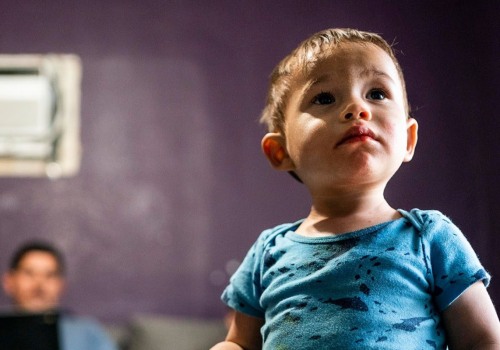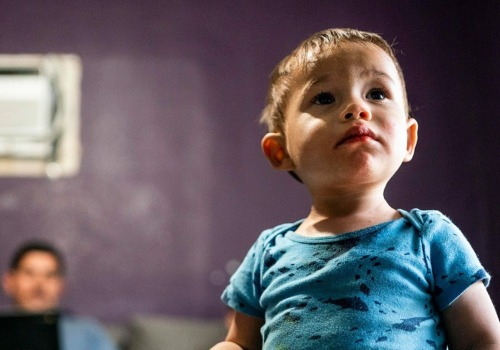Previously, low-income families didn't receive the same amount or any part of the child tax credit. Similarly, before the pandemic, a panel of experts from the National Academy of Sciences made a proposal to reduce child poverty by half by expanding child credit, which is fully available to the poorest children. Research shows that measures such as the child tax credit reduce poverty and improve children's long-term educational and health outcomes. However, the tax credit can and should do more, especially with poor children who are now at greater risk, live in economically vulnerable families, and face school closures and scarce resources.
Making the child tax credit fully available would raise more than 3 million people, including 2 million children, above the poverty line. This would bring another 13.6 million poor people, including 6.8 million children, closer to the poverty line. And for more than 1 million of these people, including 770,000 children, the expansion would lift them out of extreme poverty by raising their income above half the poverty line. By increasing the purchasing power of very poor families, this would also be a very effective economic stimulus, since these struggling families will spend virtually all the additional income they receive.
This profound economic weakness means that additional and aggressive fiscal policy measures, and over a long period of time, will be needed to strengthen demand in the economy. Puerto Rico entered the pandemic after more than a decade of economic decline and several devastating natural disasters, exacerbated by inequality in access to the U.S. UU. Residents of Puerto Rico are not eligible for the federal EITC and only families with three or more children can receive the child tax credit.
The Heroes Act would also give residents of Puerto Rico the same access to the child tax credit as it would to state residents, by extending the credit to commonwealth families with one or two children, including those with the lowest income. Making the child tax credit fully available to lower-income families, as discussed in this document, would significantly help families in Puerto Rico. Families that would benefit from this measure (see Table) do important work, often with low salaries and few benefits. The current crisis has made clear how essential their work is.
The number of working adults without children who benefit would be even higher if we considered 18-year-olds who had been adopted and homeless youth, who were made eligible by the Heroes Act. This proposal would be unnecessary for the child tax credit if fully available, as proposed here. Part of this credit can be refundable, so you can reimburse the taxpayer even if you don't owe any taxes. At a time when family budgets are under great pressure and many parents have stopped working to care for their children, expanding child credit would offer much needed relief.
Receiving child tax credit benefits will not change the amount you receive from any other federal benefit, including unemployment insurance, Medicaid, SNAP (formerly food stamps), SSI, SSDI, TANF, WIC, Section 8, or Public Housing. Families that didn't receive monthly payments can still claim the full amount of the child tax credit they're eligible for when they file their taxes. In addition, taxpayers could choose not to receive advance payments and wait until they file their tax returns to claim the amount of their credit. When you're ready to apply, you can use this tool to get free help applying for your child tax credit.
Here are some numbers you should know before applying for the child tax credit or the credit for other dependents. While Republicans were generally in favor of expanding some benefits for children, they criticized the version of the child tax credit that was enacted because of its cost and lack of work requirements. Finally, legislators should also make a unique change to the designs of the EITC and the Child Tax Credit to make them more effective now as countercyclical measures. In addition, if you have a qualifying child and you don't have a mandatory social security number, you are not eligible for the child tax credit.
Even if you received monthly payments, you must file a tax return to get the other half of your credit. If you don't owe taxes or your credit is higher than the taxes you owe, you'll get the extra money in your tax refund. The CARES Act includes a spending provision for retailers and restaurants, but not extensions to the EITC and the child tax credit, even though such expansions would provide greater cost-effective economic stimulus. Taxpayers can apply for the child tax credit even if they don't normally file a federal tax return.
The taxpayer must have a social security number and only a taxpayer can apply for the child tax credit for any individual dependent (even if that dependent can be claimed by other taxpayers). . .



